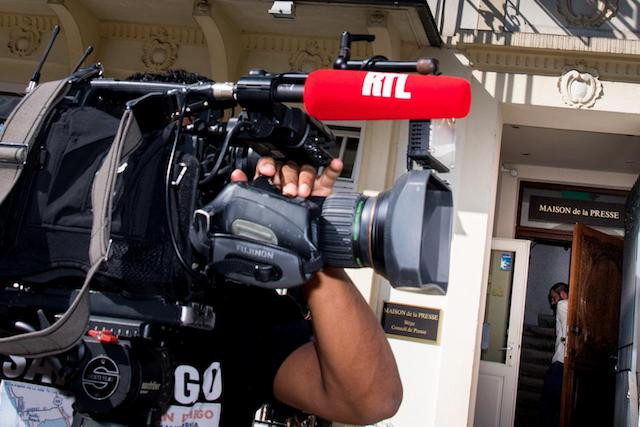The “Media Pluralism Monitor 2017” was published by the Centre for Media Pluralism and Media Freedom, a research unit at the European University Institute in Firenze, Italy, on 26 November 2018.
The report covered the media environment in the EU28 countries, the Former Yugoslav Republic of Macedonia, Serbia and Turkey. The authors explained that:
“Risks to media pluralism are examined in four main thematic areas, which are considered to capture the main areas of risk for media pluralism and media freedom: basic protection, market plurality, political independence and social inclusiveness.”
The Luxembourg country report (PDF) was written by Raphaël Kies, a researcher at the University of Luxembourg, and Céline Schall, an independent researcher affiliated with the University of Luxembourg.
Mike Koedinger, chairman of Maison Moderne, the company that publishes Delano, was a member of the report’s expert panel.
Media ownership concentration
The report noted a lack of diversity among media owners. According to the monitor:
“The media market is one of the most concentrated in Europe: three media companies clearly dominate the media market (two for the radio sector – RTL Group and Saint-Paul Group, two for the press sector – Editpress and Saint-Paul Group, and one for the TV sector – RTL Group) while one site largely dominates the Internet content intermediaries’ sector (Google.com). The press sector is very specific because it benefits from a large direct and indirect public subsidy (which explains the presence of five paid daily newspapers). In all, the four major TV owners (including non-Luxembourg media owners) account for 70.6% of the national audience, the four largest radio owners 78%, and the four largest print owners 49.4% (we do not have figures for Internet content providers). This high level of concentration can be explained by the very limited size of the market and the absence of specific legal provisions aimed at controlling media concentration.”
The monitor mentioned the introduction of online press aid last year (which Delano receives along with several other publications) which was intended to increase media diversity in the grand duchy. However, the authors warned the reformed aid regime ran the risk of giving:
“further benefit to the existing two major editorial groups (Editpress and Saint-Paul) and therefore to reinforce the existing media concentration phenomenon.”
A debate on reforming the state press aid system, organised by Paperjam Club (part of the same company as Delano) in November 2017. Photo credit: Maison Moderne
Political independence
The report then flagged the elevated potential for political influence over media outlets, stating:
“The law does not regulate conflict of interests between owners of media and ruling parties, partisan groups or politicians.”
The report authors then said:
“Compared to last year we have considered that the level of political control on newspapers got worse.”
They cited the case of Jean-Lou Siweck, who was pushed out of his role as editor-in-chief of the Wort, owned by Saint-Paul. (Siweck is now managing director at Editpress.)
In addition, Kies and Schall expressed concern about the independence of Luxembourg’s sole public service broadcaster, 100,7 radio. They wrote:
“While appointment procedures both for the management and the board are transparent, they do not guarantee for independence from political and economic influence. This issue has recently been raised (in September) in relation to the nomination of the new chairman of the board [Laurent Loschetter] who is a close friend of the prime minister. Economic independence is also problematic as the state nominated several members of the management board that are closely connected to financial and economic interests. Moreover, the annual budget has to be approved by the government and voted by the parliament.”
Gender equality
The monitor said women were even more underrepresented in senior management at broadcasters than the year before. Referring to 100,7 public radio (the “public service medium”), Kies and Schall wrote that:
“there is a drop of the presence of women in the PSM management board – from 44% in 2016 to 33%, and there are no women in the executive board. In the audiovisual sector (i.e. RTL television) the result is even worse as its management board (clt-ufa) is composed of only 10% of women (i.e. 2 women out of 20 members) and there are no women in the executive committee. In contrast, there is an equilibrated share of women in subjects and sources in traditional and online media and among the reporters in newspapers, radio and television news.”
The press pack outside the Luxleaks trial in 2016. Photo credit: Sven Becker
Freedom of information
The report said there was a “low risk” to the basic protection of journalists and their ability to work. However, Kies and Schall were critical of the fact that Luxembourg does not have a freedom of information act, and that all media requests to ministries have to be handled via government press officers.


